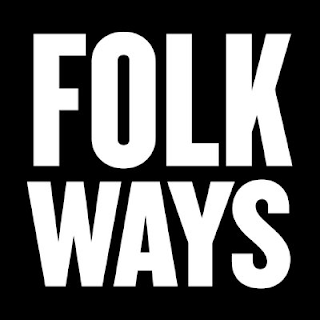0:00:00 Lomax introduction (AFS 6670 A1)
0:00:53 The Eighth of January (6670A2)
0:03:43 Interview with Sid Hemphill about his father, repertoire, instruments, and the Carrier Line
0:07:51 The Carrier Line (6670 B1)
0:13:37 The Roguish Man (part 1) (6670 B2)
0:18:57 The Roguish Man (part 2) (6670 A4)
0:19:56 Interview with Sid Hemphill about his composition "The Roguish Man" and Jack Castle
0:21:22 Interview with Sid Hemphill about his composition "The Strayhorn Mob."
0:22:30 The Strayhorn Mob (6671 A2)
0:27:25 Boll Weevil (6671 A3)
0:32:46 Arkansas Traveler (6671 B1)
0:38:27 Tunings and demo (guitar, banjo, kazoo) (6671 B2)
0:40:08 Come On, Boys, Let's Go to the Ball (6672 A1)
0:41:55 Come On, Boys, Let's Go to the Ball (6672 A2)
0:43:35 Emmaline, Take Your Time (6672 A3)
0:46:08 The Devil's Dream (6672 A4)
0:49:20 Leather Britches (6672 B1)
0:50:30 Rye Straw (6672 B2)
0:52:38 So Soon I'll Be At Home (6672 B3)
0:54:13 Jesse James (6673 A1)
0:55:57 After the Ball Is Over (6673 A2)
0:57:54 The Sidewalks of New York (6673 A3)
1:00:00 The Death March (6673 A4)
1:01:56 John Henry (6673 A5)
1:05:26 Keep My Skillet Good and Greasy (6673 B1)
1:09:00 Hog Hunt (6673 B2)
1:13:38 Soon In the Morning (6673 B3)
[Credits]
Sid Hemphill (fiddle/quills/fife/vocals) Lucius Smith (banjo/drum) Alec Askew (guitar/quills/vocals) Head (bass drum) unidentified (kazoo)
[Notes]
Alan Lomax and Lewis Jones' complete August 15, 1942 recordings of Sid Hemphill and his band, recorded at (or before) a picnic at the "Funky Fives" (also noted by Lomax as "Po' Whore's Kingdom"), outside of Sledge, Quitman County, Mississippi, made under the auspices of the Library of Congress' Archive of Folk Song and Fisk University. Multi-instrumentalist, band-leader and composer Sid Hemphill (1876-1961) was for decades the musical patriarch of the Mississippi Hill Country. He and his band — comprised of Alec "Turpentine" Askew, Will Head, and Lucius Smith; like Sid, all from Panola County, Miss. — were fixtures at dances, picnics, and frolics throughout the Delta and the Hill Country. Alan Lomax recorded Blind Sid in August 1942, near Sledge, Mississippi, where his band was appearing at a country picnic and banging out their breakdowns, marches, and square-dance tunes, as well as several blues ballads composed by Hemphill himself. By that date hundreds of commercial records had been made of the music of the Delta, and the preponderance of those were of or relating to the blues form, with guitar or piano accompaniment. Lomax's were the first made of the Hill Country's local music, and contributed to a broader perspective of black vernacular instrumentation, with their inclusion of the fiddle and banjo of the string band, the fife and drum ensemble, and the cane panpipes or "quills." Lomax recorded Sid and Lucius again in 1959. Please visit http://bit.ly/1dB7cwe for the complete streaming audio of that session, and for more information about Alan Lomax's collections and the Alan Lomax Archive. (Lomax returned to North Mississippi once more in 1978, when he, Worth Long, and John Bishop filmed a session with Lucius and Sid's granddaughter Jessie Mae Hemphill. Search our channel for some of their performances.)
 For more information, visit the website of the Library of Congress
For more information, visit the website of the Library of Congress For more information, visit the website of the Library of Congress
For more information, visit the website of the Library of Congress






 For more songs and videos from the Folkways Voices of Struggle
For more songs and videos from the Folkways Voices of Struggle


